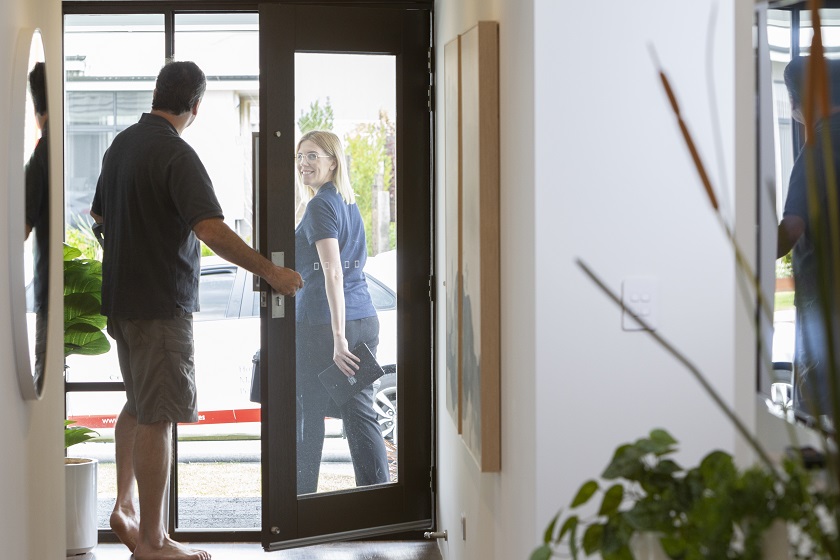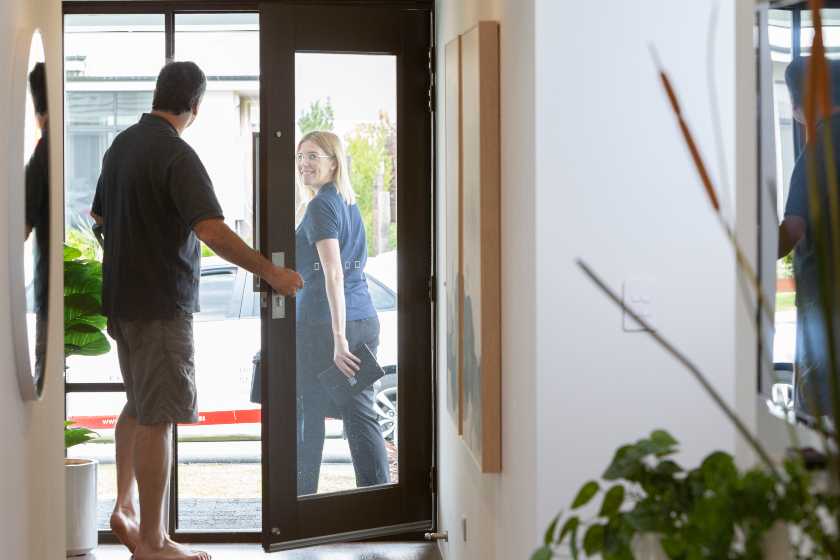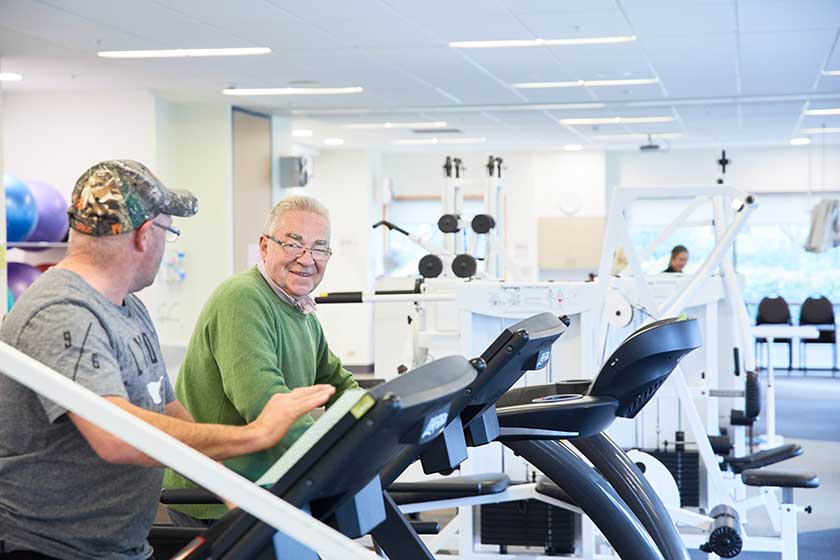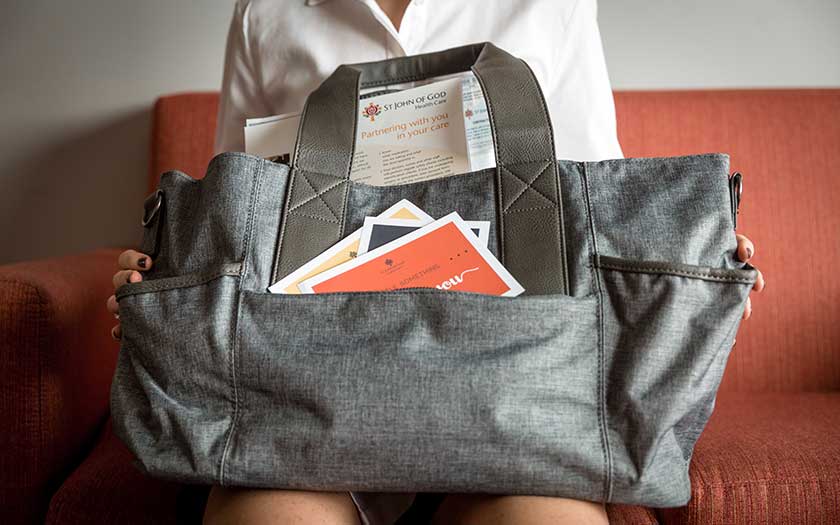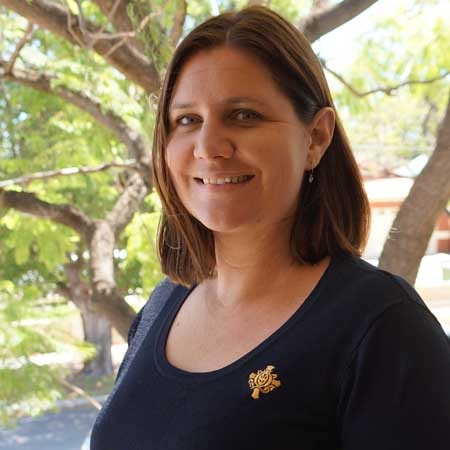St John of God Healthcare at Home Wound Care Clinical Nurse Specialist Katrina Hulsdunk says that effective wound and incision management is vital to prevent complications, and both health care professionals and patients have a role to play.
“Having a qualified and experienced nurse check and manage your wound is valuable, even if it’s just to reassure you that your wound is healing,” Katrina says.
“Sometimes patients are not sure how their wound is healing which can make them feel a little nervous.
“Patients may also experience pain and want to know if it’s an expected level of pain or if it’s signalling something else.
“It can be reassuring to know that you are healing well and within the expected timeframes.”
It is important for patients to follow the instructions on wound care given by their specialist or the wound care nurse at the hospital.
Wound care
- The appearance of your wound: our surgeon will provide instructions regarding the cleaning and bandaging of your wound before you leave the hospital.
- What to do if you suspect any complications are developing such as wound breakdown, Deep Vein Thrombosis (DVT), breathing difficulties or an increase in temperature.
- The signs of infection: pain, redness, heat, swelling, increased wound ooze, sometimes pus at the wound. Report these immediately to the surgeon and/or visiting nurse.
If you are unwell, you should present to the nearest emergency department.
Other post-surgical care
- Be aware of any exercise restrictions from your specialist, occupational therapist and/or physiotherapist. You may be followed up at home by the physiotherapist or occupational therapist.
- Your specialist will advise when it is safe for you to drive a car.
- Ensure you take the pain medications prescribed by your specialist as directed.
- Continue to use any of the home aids and devices to protect and reduce stress on the surgical areas.
- Unless instructed otherwise, you can resume your normal diet. Eating foods high in protein will support your body in the healing process .
Katrina says Healthcare at Home nurses can help you look after your wound when you return home from hospital by assessing your needs and working with your specialist to develop a wound treatment plan.
“Our nurses can provide a range of services tailored to meet your needs, including wound care and administering IV antibiotics or anti-coagulation treatment,” Katrina says.
“We may remove clips or sutures from your wound, usually 10 -14 days after surgery.
“And we will support you to take care of your wound so that you recover well and get back to everyday life, sooner rather than later.”
Orthopaedic care includes knee and hip disorders and ligament reconstructions; shoulder, elbow, wrist and hand problems; joint replacements and reconstructions for hip, knee, shoulder, elbow, hand and wrist, foot and ankle; foot and ankle disorders; sports-related injury management; spinal injuries and paediatric orthopaedics.

